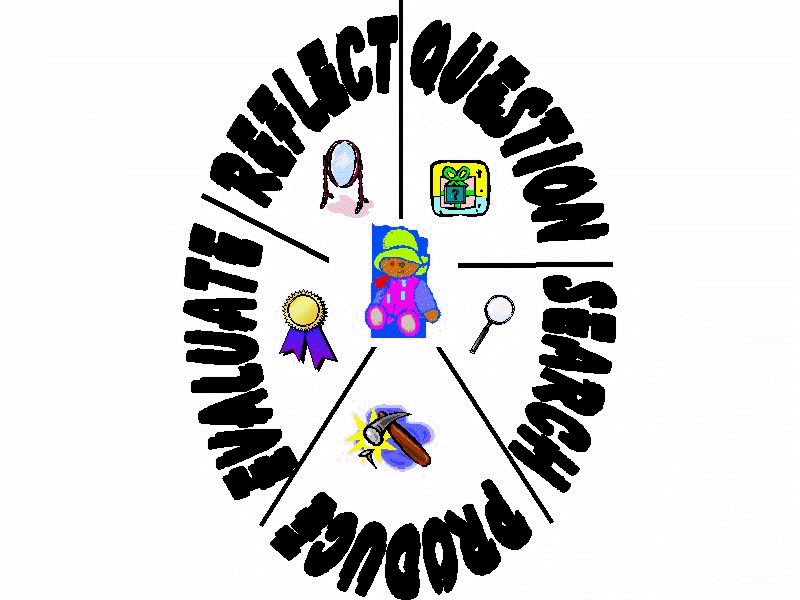 |
QueSPER Information Literacy Curriculum |
Grade Six
Teaching Goal: Develop students' ability to
synthesize information and document resources
(under construction)

The student will:
Review definition of information and process of how we learn
Review pattern seeking methods: LOOK FOR PATTERNS: Question, Describe, Compare, Match, Categorize, Conclude, Report, Evaluate, Reflect
Review category making and ordering: Alphabetical order, Numerical order, Subject order, Type order (Fiction & Nonfiction)
Review retrieval strategies: Spelling, Meaning, Last names, Keywords, Guide words, Guide numbers, "Between" search, "Z" search
Focus on using research process for FIRST SEARCH and KNOWLEDGE SEARCH inquiry: QueSPER: question, search, produce, evaluate, reflect.
Relate pattern-seeking process to independent inquiry process.
Focus on development of good questions.
Use SMLKA independently.
Use PROBE strategies: Use search strategies based on information type, source, location and subject: including interviews, encyclopedias, dictionaries, atlases, almanacs, periodicals, biographies, and other references sources.
Use PROBE strategies. Develop deeper knowledge of using a computer to search for recorded information (dictionaries, computer catalog, web sites, and indexes for periodicals, indexes in encyclopedias, atlases and trade books).
Use PROBE strategies. Develop beginning knowledge of evaluation of information using the following terms: RELEVANT - RELIABLE- (Accurate) - (Available) - CURRENT (up to date)- COMPREHENSIVE (Complete) - No Evidence of BIAS OR DISCREPANCY
Focus on strategies for note taking and source citation.
Develop knowledge of author or illustrator as creator of recorded information.
Develop knowledge of credit due an author of recorded information for his/her work and consequences for ignoring this step.
Focus on strategies for reporting: e.g. sorting, selecting, and synthesizing and good writing practices.
Develop deeper knowledge of using a computer to create products using templates, word processing programs, and electronic presentation programs.
Develop deeper knowledge of structure for citation of sources.
Develop student's ability to create self-evaluation and reflection rubrics
Develop connection between home and school learning
Develop knowledge of personal independence and responsibility in using the LMC.
Develop knowledge of computer as a tool to help us learn
(parts of computer and network, file management, word processing programs,
publishing programs, web site investigation, presentation program, production
activities).

© Carol J. Fox, 2006
|

![]()
![]()